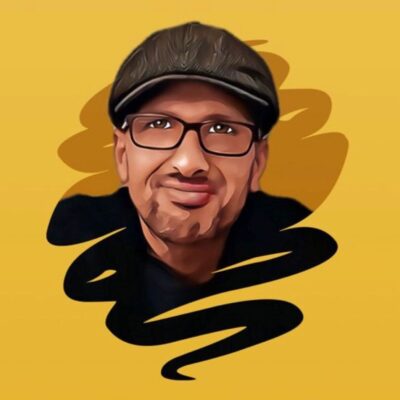
Sigmund Freud once observed that a civilisation is built upon the suppression of instinctual drives. One could equally say it’s built on illusion—the illusion of proportionality, restraint, neat categories and reliable boundaries. We imagine that wars are orderly affairs, governed by laws that can distinguish clearly between what is necessary and what is criminal, between aggressor and victim, between the justified death and the senseless slaughter.
By Rafael Baroch
Freud argued that while civilisation offers benefits, it also creates a sense of unhappiness and dissatisfaction because it necessitates the repression of basic instincts, such as aggression and the pursuit of pleasure.
It is evident that the neat categories we constructed to soothe ourselves have collapsed. We are left with dead bodies, and a troubling realisation: moral language has become a weapon more devastating than the bombs it claims to judge.
The West, haunted by guilt, has long insisted that power must be balanced by conscience, that strength must be tempered by doubt, perhaps rightly so. But something changed when this balancing act became our central vulnerability.
Those who reject everything the West claims to value—democracy, freedom, equality—have learned our vocabulary and used it against us. They have mastered our rhetoric of rights and justice and deployed it cynically, knowing exactly how to puncture the moral superiority we cherish.
There is historical precedent: from the Visigoths who studied Roman command structures before sacking the empire, to anti-colonial leaders trained in Western law who later wielded its ideals against imperialism. Today’s adversaries are no different. They have studied not our weapons, but our words.
Thus, we find ourselves in the perverse position of having terrorists who speak fluently in the language of justice, who kill civilians one moment and appeal to international law the next. They inhabit the human rights lexicon with impressive ease, even while openly celebrating the deaths of innocents.
The game is not subtle, yet it remains extraordinarily effective. It leverages precisely the West’s deepest fears: perhaps we do not deserve our power or are always guilty of some hidden or historical injustice.
This is the genius—and tragedy—of contemporary warfare. It’s no longer only about bodies but about ideas, about who has the authority to define meaning. In our era, the terrorist does not only plant bombs; he plants narratives. He sows doubt. He cultivates moral paralysis. And he waits, knowing the West’s impulse is always towards self-accusation, self-doubt, and eventual paralysis.
Some will accuse me of moral relativism, or worse, of defending violence. They miss the point. Questioning our categories is not to justify violence but to acknowledge reality. It is to recognise that moral and legal frameworks forged earlier have become dangerously obsolete. It is to understand that we are not merely facing a military threat but an existential one. The enemy is no longer at the gates; he has taken residence in our lecture halls, courtrooms, newsrooms, and poetry.
We are caught in the paradoxical bind of defending our values using precisely those values that have been corrupted against us. In the name of justice, we refuse to discriminate between a society that celebrates death and one that—however imperfectly—attempts to protect life. We prefer moral symmetry to moral clarity, convinced that clarity is always somehow oppressive, arrogant, and colonial.
The International Criminal Court issues warrants with remarkable symmetry, indicting defender and aggressor as though their acts were fundamentally interchangeable. We congratulate ourselves on impartiality, without noticing that in the very act of impartiality we have abdicated the moral responsibility to distinguish between survival and nihilism.
One might argue that civilisation is precisely this: the discipline of hesitation, the ethics of doubt. Perhaps. But civilisation also requires courage, and courage demands distinction. To defend civilisation is to insist that differences matter: between victim and aggressor, between life and death, between protection and murder.
To refuse to make these distinctions is not neutrality—it is surrender. It is to concede that nothing matters except appearances, morality is just one more game, and law is only theater. And a civilisation that believes this—one that has lost the confidence to name things clearly—no longer deserves to survive. It has become a spectator to its own slow and elegant suicide.
In the end, silence is the absolute defeat. The enemy does not seek merely our submission, but our silence. And we, afraid to appear unjust, afraid to offend, afraid even of our shadows, risk handing him precisely what he wants: a world without distinctions, judgment, and courage.
Perhaps Freud was only half-right. Civilisation is built on repression and recognition—the recognition of truth, however painful. And when a civilisation can no longer recognise what threatens it, it has chosen repression and blindness.
A civilisation blind to its threats is not merely fragile—it is repeating an ancient pattern, one where its greatest ideals are studied, mimicked, and finally weaponised. The tragedy is not that we are attacked, but that we willingly assist. A civilisation that collaborates in its erasure cannot plead innocence. It can only hope to be remembered kindly, if at all.







An original and brilliant analysis. The enlightened West, in its devotion to ideals, seems to offer itself up sacrificially, slowly simmering while forgetting to protect itself